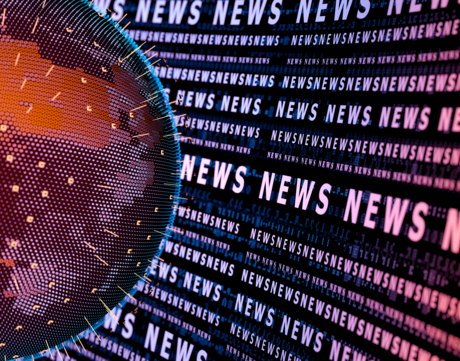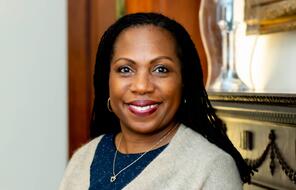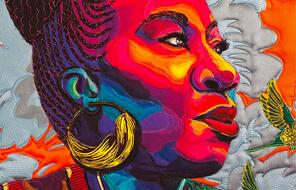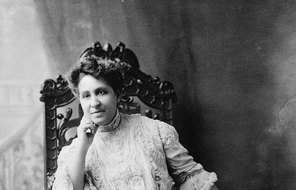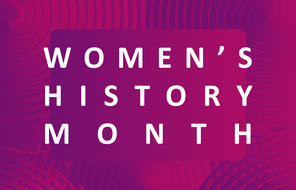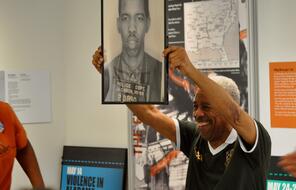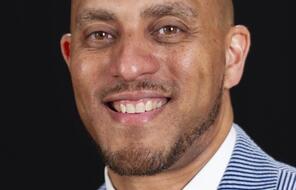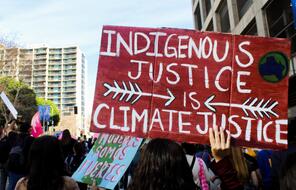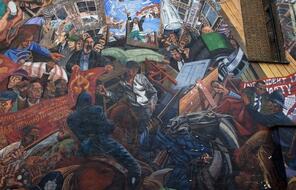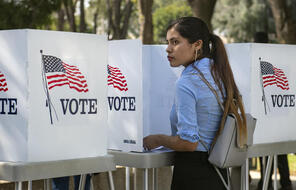“In total, 59 elections have been held since 1789, and 40 of the 46 presidents have been elected this way.” And with the exception of the very first election of the very first president, in which “George Washington was described in almost universally glorified terms by the national presses,” there has always been a dramatic tug of war that’s played out in the news about who is qualified to be president and who will destroy democracy as we know it.
With all the drama, lionizing, and villainizing that follows all presidential elections (or any election), how can each of us find accurate and impartial information, especially when we live in such a media-dense landscape? Being a responsible voter requires being informed. But what information can we trust?
What Can Educators Do to Support Students in Developing Media Literacy Skills?
Making sure our students, and all Americans, understand how to assess the information they find is critical. Readers of the news need media literacy tools that can help them vet their news choices in order to determine if any given source is reliable, ethical, and thorough. It's necessary not only to evaluate bias in the news we all read, but also to consider personal biases that make each of us more inclined to believe content that aligns with our own beliefs—-even when it's inaccurate.
For educators looking for a workshop related to media literacy, the upcoming free opportunity from KQED is highly recommended!
- KQED & Facing History: Teaching about Current Events and Navigating the Media Landscape (September 12)
We live in a time when it can be difficult to identify reliable news sources. Misinformation and disinformation clouds our information landscape, especially around a national election. This session with KQED and Facing History prepares educators and students to take stock of their media choices, explore media bias, explore tools for differentiating fact from opinion, and think about what healthy news habits they want to adopt.
And the following evergreen resources can offer great guidance and advice for educators, students, and any lifelong learner:
- Mini-Lesson: Where Do We Get Our News and Why Does It Matter?
Explore media bias using news coverage of controversial events and help students think about what healthy news habits they want to adopt. - Mini-Lesson: How to Read the News Like a Fact Checker
Reading “laterally” is a key media literacy strategy that allows students to determine the quality of online sources. This mini-lesson trains students to use this technique to evaluate the credibility of the news they encounter on social media feeds or elsewhere online. - Article: Misinformation in the Information Age: What Teachers Can Do to Support Students
Three educational approaches are outlined with examples for how young people can develop the capacity to judge the accuracy and credibility of online information. - Website: Allsides
This public benefit corporation serves news consumers and provides patented technologies, tools, and services to media companies, nonprofits, schools, businesses, and other organizations. Allsides displays the day’s top news stories from the left, center, and right of the political spectrum so readers can see the full picture of pressing issues. - Website: News Literacy Project
This nonpartisan education nonprofit is building a national movement to create systemic change in American education to ensure all students are skilled in news literacy before they graduate high school, giving them the knowledge and ability to participate in civic society as well-informed, critical thinkers.
Is Media Literacy More Important in the 21st Century
Media literacy has always been critical, but the distribution of mass publications has come a long way, from the advent of the printing press to the dominance of the internet. Television, radio, print, and online content surround us 24/7—this means that even if we are not seeking out the news, we are exposed to it, and forming opinions. And the new technological advance of artificial intelligence has upped the ante when it comes to the work we must all do to discern fact from fiction. As NPR recently reported, “Learning to identify the growing flood of deepfakes, along with online conspiracy theories, is becoming a rite of passage for students.”
Who Needs to Worry About Media Literacy?
The answer is probably clear: everyone. While modeling thoughtful news reading for young people is key for forming lifelong healthy habits, learning and practicing media literacy is not just for youth. “Recent research has identified older adults as a demographic group especially susceptible to fake news online. For example, during the 2016 U.S. presidential campaign, people 65 and older were twice as likely to be exposed to fake news on Twitter and seven times more likely to share fake news on Facebook than 18–29 year olds.” Furthermore, the Pew Research Center has found that many adult Americans have trouble identifying facts versus opinions, and that Democrats and Republicans often believe that the partisan opinions coming from their specific political party are actual facts.
Beefing up on media literacy doesn’t need to be an onerous task, though. Just as people check food labels or comparison shop for the best deals, so too can we integrate comparing the news we read across a variety of sources into daily life. Of course, every task has its learning curve, but becoming more mindful of the sources we all consume and double checking their veracity gets easier the more we do it. Plus, once you’ve found a good rotation of media outlets that you’ve verified as ethical and factual, you can double-check other news against the record of those trusted outlets. This list of fact checking sites from a division of the League of Women Voters can also assist in illuminating what popular news pieces are truthful or fantastical.
The upcoming presidential election stands as a reminder to all of us to check-in on our level of media literacy. But the 2024 US presidential contest is just one in a series of elections. Every year multiple local, state, and national elections occur, and it's most often the small elections where an individual vote is mightiest. Staying well-informed is part of our civic duty and we should remain mindful no matter what political office is up for grabs.

